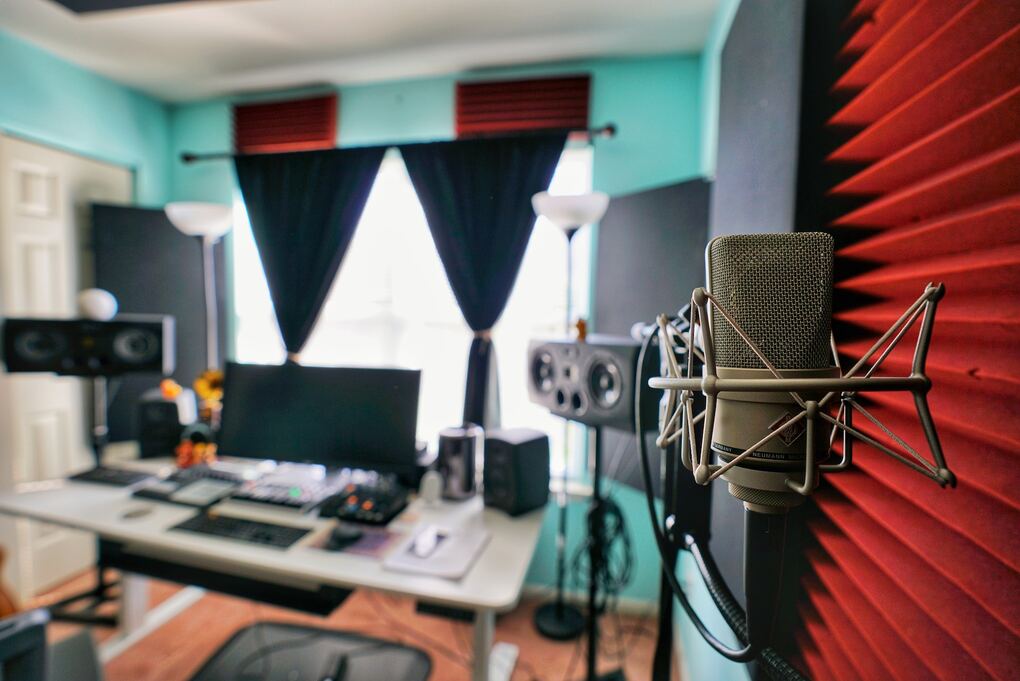Today’s recorded music industry is constantly changing, with hit records being made on laptops and wherever producers decide to work. Our Audio Production course has responded to the changes driven by this wave of innovation and helps prepare students to develop professional recording settings. Get in touch to learn more about our programme and how to enhance a home studio in our latest blog.
Are you ready to take your home studio to the next level?
In this blog post, we’ll discuss transitioning from a home studio to a professional one.
This evolution may seem daunting, but it’s a rewarding journey that opens up new creative possibilities and potential revenue streams.
Here, you’ll learn everything you need to know about making this exciting move, from evaluating your current setup to mastering advanced production techniques and marketing your professional studio.
Evaluating Your Home Studio
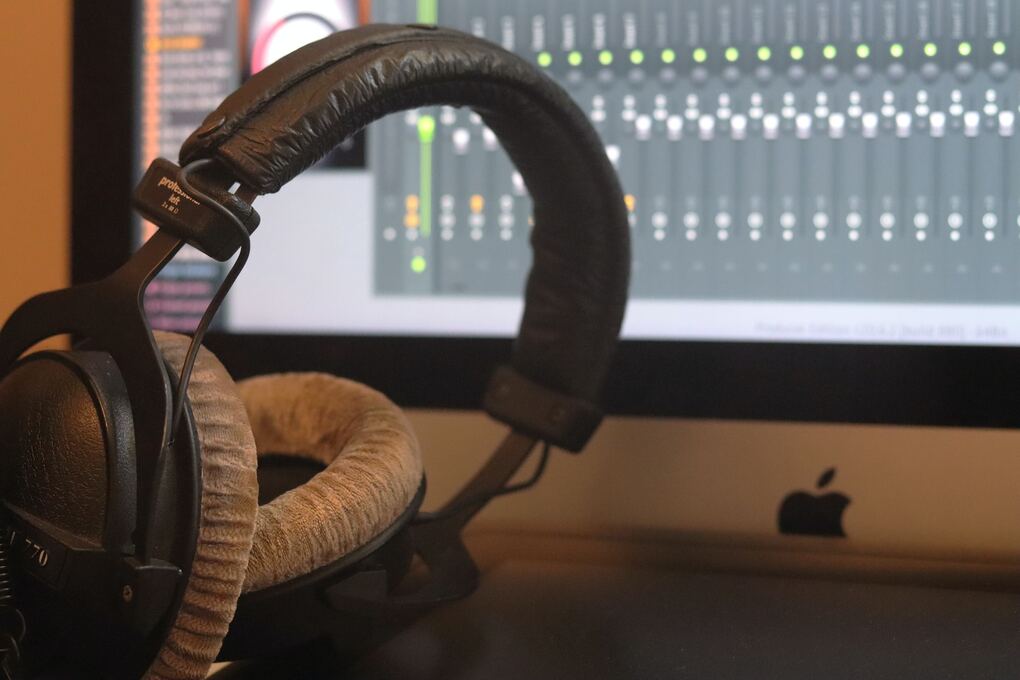
Before transitioning to a professional studio, review your current home studio setup.
This will help you identify areas for improvement, including equipment, software, and room acoustics. A thorough review of your existing resources will help you determine where you need to make the necessary upgrades to achieve professional-quality sound and workflow.
The evaluation process can be divided into three key areas: equipment inventory, software assessment, and room acoustic analysis.
Equipment Inventory
The first step in evaluating your home studio is reviewing your existing equipment.
Are you working with outdated gear that’s holding you back? Or perhaps you’re missing essential items that could elevate your music production process? Assess your computer setup, monitoring system, microphones, and other equipment to determine what needs upgrading or replacement.
Remember the often-overlooked aspects, such as chairs and desks, MIDI controllers, and remote recording capabilities.
Investing in the right equipment can enhance your studio’s performance, increase its appeal to potential clients and ensure you maximise your opportunities and talent.
Software Assessment
Once you’ve inventoried your equipment, it’s time to assess the software tools you’re using. Are you working with a DAW that’s compatible and meets your needs? Do you have the right plugins to achieve the sounds you want? Software mastery is essential for efficiency and creative flexibility in a professional studio, so take the time to evaluate your current software and consider upgrading or exploring new tools if necessary.
From Ableton to Pro Tools and Logic, many options exist to help you make your music. Familiarise yourself with the features and capabilities of your DAW and plugins to optimise your workflow and enhance your music production skills.
Room Acoustic Analysis
Finally, you’ll want to analyse your room’s acoustics to identify any issues impacting sound quality. Room dimensions, shape, and treatment are crucial in achieving optimal quality in a home studio. Use measurement tools like Room EQ Wizard to evaluate your room’s frequency response and identify areas for improvement.
Address common acoustic issues, such as reflections, standing waves, and uneven frequency response, by implementing appropriate acoustic treatment materials like absorbers, diffusers, and bass traps.
Optimising your room acoustics guarantees accurate and balanced audio recordings, a cornerstone of professional music production.
Upgrading Your Studio Space
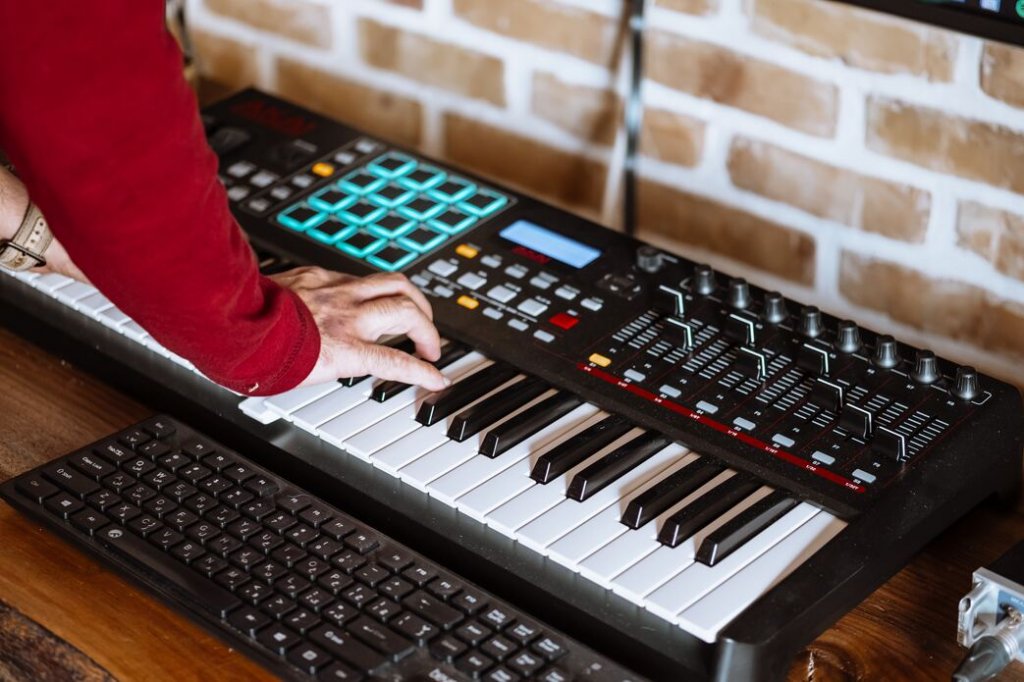
With a clear understanding of your home studio’s strengths and weaknesses, you can now focus on upgrading your space.
This can involve selecting an appropriate location, implementing acoustic treatment, and designing an ergonomic workspace. Each factor is crucial in creating a professional studio environment that will help you produce high-quality music and attract more clients.
Each of the following aspects is worth further exploration.
Location Selection
Choosing the right location for your professional studio is paramount. You’ll need a space free from external noise that offers adequate room for your equipment and is easily accessible for clients and collaborators. Consider factors like room dimensions, shape, accessibility and proximity to your target audience when selecting a studio location.
Careful consideration of these factors creates an environment conducive to producing your best work and ensuring a positive client experience.
Acoustic Treatment
Once you’ve found the perfect location, it’s time to optimise your space’s acoustics. Implementing acoustic treatment will help you achieve excellent sound quality by minimising unwanted reflections and resonances. This can involve adding absorptive panels, like acoustic foam or bass traps, to reduce reverberation and using room correction software to fine-tune your room’s frequency response.
Properly treating your studio space guarantees fantastic-sounding recordings and instils confidence in making critical mixing and mastering decisions for the final mix.
Ergonomic Design
In addition to acoustic treatment, designing an ergonomic workspace is vital for maximising comfort and productivity during long studio sessions. This includes investing in a comfortable chair, adjustable desk, and proper monitor placement. An ergonomic workspace will help you maintain good posture, reduce fatigue, and focus on your work.
Don’t underestimate the value of a well-designed recording studio space; it can significantly impact your ability to produce high-quality music, even saving you plenty of money in the long run.
Investing in Professional Equipment
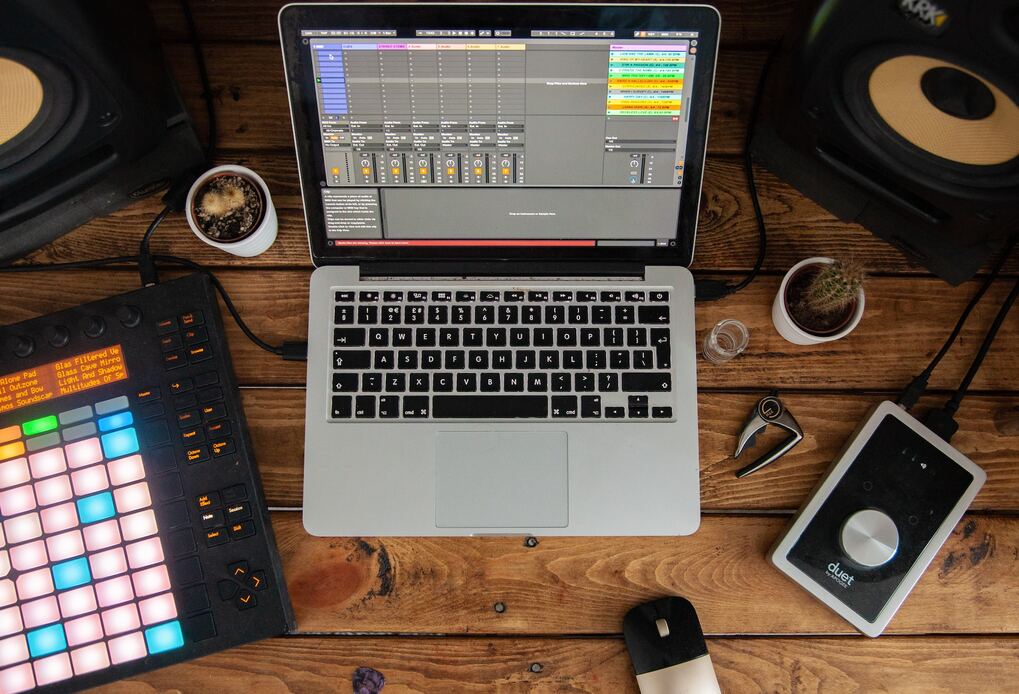
Now that your studio space is optimised, investing in professional equipment is time.
Upgrading your audio interface, microphones, and monitoring systems will improve your sound quality and versatility. High-quality equipment enhances your recordings and enables you to offer your clients a broader range of services.
Obviously, budget plays a part in this, but specific equipment upgrades, such as proper gain staging and outboard gear, can help elevate your studio to the next level.
Audio Interface
A high-quality audio interface is essential for capturing pristine sound in your professional studio. Look for an audio interface with low latency, flexible I/O options, and compatibility with your OS and DAW. A top-notch audio interface will ensure that your recordings sound their best and allow you to expand your capabilities as a music producer.
Some examples of highly-rated audio interfaces include the Universal Audio Apollo Twin X, Audient iD4 MkII, and Focusrite Scarlett 2i2 3rd Gen.
Microphones
Investing in various microphones is crucial for accommodating different recording situations and achieving optimal sound capture. Consider adding condenser, dynamic, and ribbon microphones to your collection to handle multiple recording scenarios.
A diverse selection of microphones enables better capture of the unique nuances of each instrument and vocal performance, leading to professional and polished recordings with multiple tracks.
Monitors
Your monitoring system is critical in ensuring accurate sound reproduction in your studio. Upgrading your monitors and monitoring systems will enable you to make more informed decisions during the mixing and mastering, resulting in better-sounding music.
Some highly-rated monitoring systems include the KRK Rokit 5 G4, Yamaha HS5, and Adam Audio T5V. Investing in a high-quality monitoring system enables the creation of mixes that translate well across various playback systems. This is a crucial aspect of professional music production.
Expanding Your Skillset
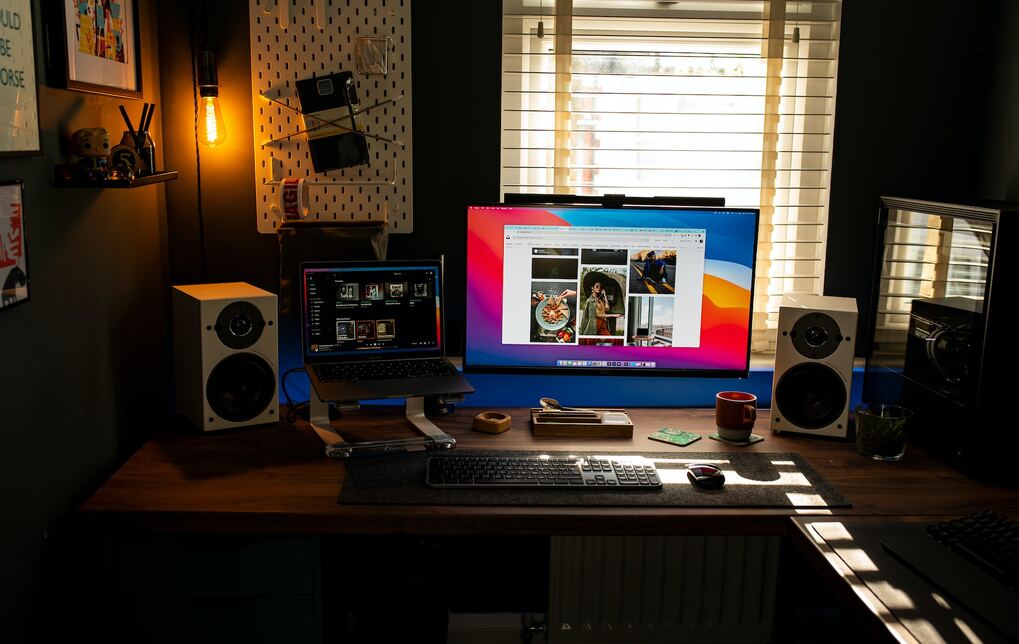
Expanding your skill set is essential as you upgrade your studio space and equipment. This will further enhance your creative and technical abilities as a music producer, making you more valuable to clients and collaborators. By learning advanced production techniques, mastering your software tools, and networking with other professionals, you’ll be well-equipped to handle the challenges of a professional studio environment.
These areas, along with other locations, deserve a more detailed exploration.
Advanced Production Techniques
Developing advanced production techniques is essential for staying at the cutting edge of music production. Some techniques that can help you stand out in a competitive industry include:
- Reverse reverb
- Gated snare
- Layering and blending sounds
- Parallel compression
- Creative Sampling
By incorporating these techniques into your music production and working with a skilled mix engineer, you can elevate your sound and make it sound great, setting yourself apart from the competition.
Invest time learning new techniques, experimenting with different approaches, and staying up-to-date with the latest production trends. Navigating the learning curve and continual expansion of your skillset equips you to create unique and compelling music that resonates with your audience and clients.
Software Mastery
In addition to advanced production techniques, mastering your software tools is crucial for streamlining your workflow and improving efficiency. This includes your DAW and the plugins and virtual instruments you use to shape your sound. Familiarise yourself with the features and capabilities of your software tools, and don’t be afraid to explore new and innovative features that can expand your creative possibilities.
Mastering your software allows for quicker and more effective work, freeing you to focus on the creative aspects of music production with hands-on control.
Networking and Collaboration
Networking and collaborating with other professionals is vital to expanding your skillset and building a positive reputation in the industry. You’ll access new knowledge, experiences, and opportunities by connecting with other producers, musicians, and industry professionals. Attend industry events, join professional organisations, and participate in online forums and communities to build your network and collaborate with others.
Networking and collaboration can pave the way for new business opportunities, creative partnerships, and invaluable learning experiences, contributing to your growth as a music producer.
Marketing Your Professional Studio
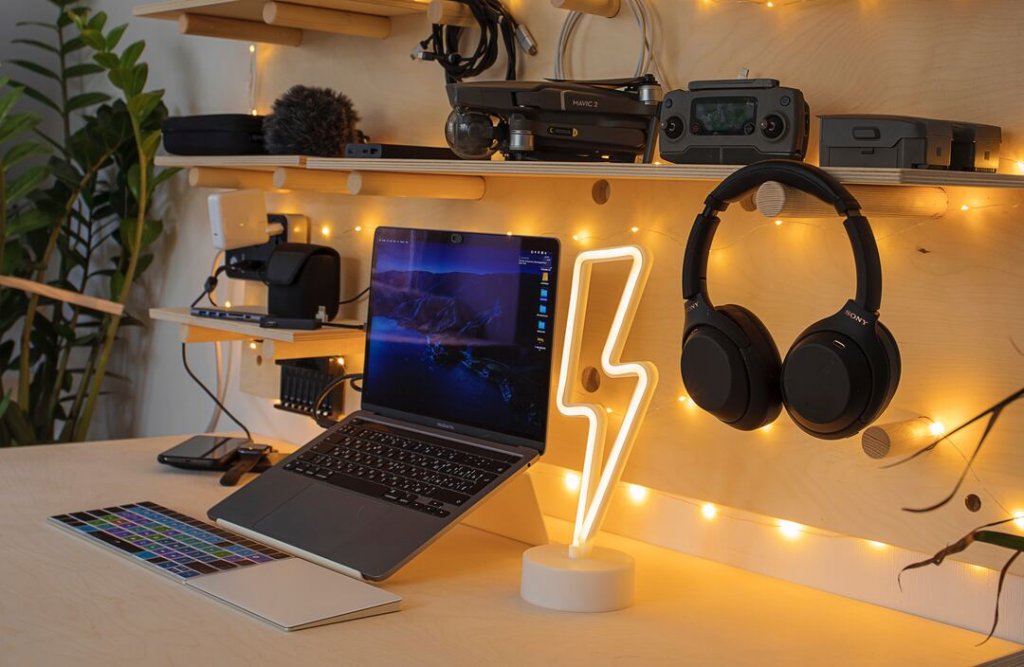
As you upgrade your studio and expand your skillset, you must focus on marketing your professional studio to attract clients and grow your business. This includes creating a solid brand, developing an online presence, and showcasing your portfolio. By effectively marketing your professional studio, you can demonstrate your expertise, showcase your services, and attract new clients.
You can read our previous blog on effective marketing strategies – and find out more below:
Branding and Online Presence
Establishing a unique brand identity and maintaining a consistent online presence is crucial for attracting potential clients. This includes:
- Creating a memorable logo
- Developing a professional website
- Utilising social media platforms such as Facebook, Instagram, and Twitter to showcase your work and engage with your target audience.
Effectively managing your branding and online presence enables you to reach a large audience, increase your visibility and effectively showcase your services and portfolio to potential clients.
Portfolio Development
Developing a diverse portfolio of your work is essential to marketing your professional studio. This allows you to demonstrate your skills and versatility as a music producer, making it easier for potential clients to see the value you can bring to their projects, including making money.
Be sure to include a variety of samples that showcase your expertise in composing, mixing, and designing sound for different genres and moods. Organise your portfolio by category or genre, making it easy for potential clients to find the work most relevant to their needs.
Client Outreach
Reaching out to potential clients is essential for growing your professional studio business. Use targeted marketing efforts such as social media advertising, email campaigns, and networking events to connect with potential clients who may be interested in your services.
Actively engaging with your target audience and showcasing your skills and expertise helps build a strong reputation and attract new clients to your professional studio.
Legal and Financial Considerations
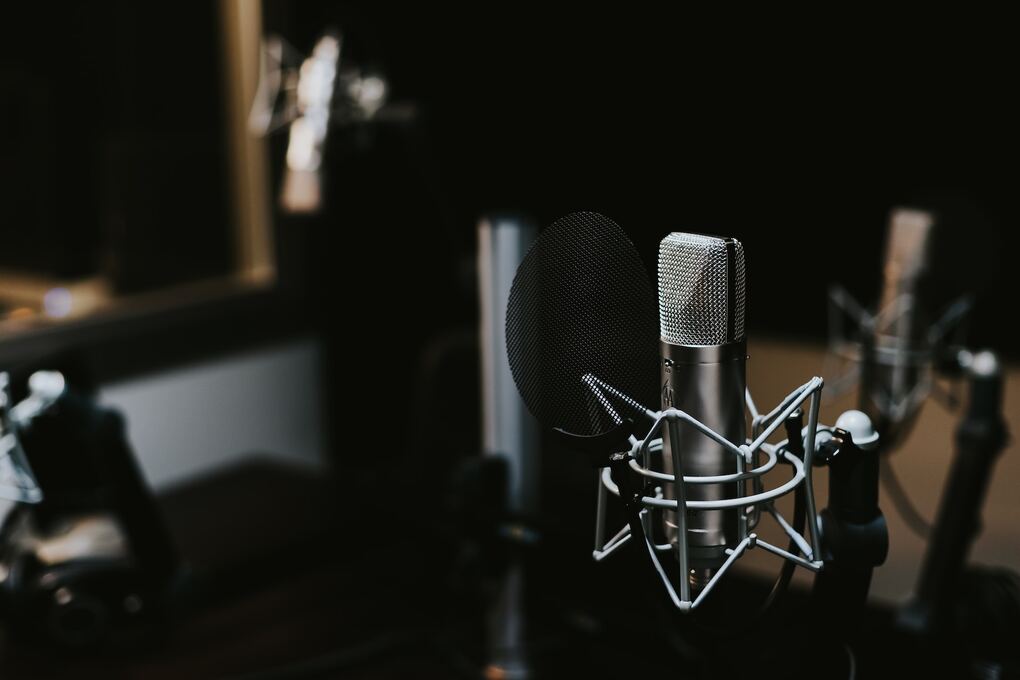
As you establish and grow your professional studio, it’s essential to consider the legal and financial aspects of running a business alongside your music and tech. This includes setting up a business structure, managing taxes and insurance, and drafting contracts and agreements. Addressing these considerations ensures your business is protected and abides by legal requirements.
Business Structure
Determining the appropriate business structure for your professional studio is an essential first step in setting up your business. This can include options such as:
- Sole proprietorship
- Partnership
- Limited company
- Corporation
Each business structure has its advantages and disadvantages, so it’s essential to carefully consider which option is best suited for your specific needs.
Taxes and Insurance
Managing taxes and insurance is crucial for protecting your business and complying with legal requirements. Be sure to understand the tax implications of setting up a home studio, such as expenses, capital gains tax, and VAT reclamation.
Additionally, obtaining the appropriate insurance, such as public liability insurance, will ensure that you’re protected in the event of any injury or damage to a third party.
Contracts and Agreements
Drafting clear contracts and agreements is essential for outlining the terms and conditions of your services and protecting your interests, rights and income streams as a music producer. Be sure to include critical information such as:
- The scope of work
- Payment terms
- Intellectual property rights
- Confidentiality
- Termination clauses
- Dispute resolution
Well-defined contracts and agreements ensure a clear understanding of the working relationship and responsibilities between you and your clients.
Conclusions
Transitioning from a home studio to a professional one is a challenging but rewarding journey.
By evaluating your current setup, upgrading your studio space, investing in professional equipment, expanding your skillset, and effectively marketing your services, you’ll be well on your way to establishing a successful professional studio business. Don’t forget to consider the legal and financial aspects of running a business to ensure your venture is protected and compliant. You can achieve your dream of running a thriving professional music studio with the right approach and commitment.
Frequently Asked Questions
What is the main difference between a home studio and a professional studio?
The main difference between a home studio and a professional studio is the quality and quantity of the recording equipment, with the professional studio offering better equipment, soundproofing, and privacy. Home studios are more convenient as there is no rent or travel needed.
How do I get professional sound recordings?
Record in a quiet location for professional sound recording, invest in a decent microphone, use a pop filter and mic stand, split up audio channels using a mixer, and clean up the voice-over audio with the right equipment. Consider using a professional DAW to record at higher bit depths and sampling rates and adjust levels accordingly for high-quality audio.
What are some essential equipment upgrades for transitioning to a professional studio?
For a professional studio setup, investing in an audio interface, microphones and monitoring systems is essential for better sound quality and more options.
How can I optimise my room acoustics when upgrading my studio space?
When upgrading your studio space, you should install acoustic treatments such as absorptive panels and bass traps to optimise your room acoustics. This will minimise unwanted reflections and resonances for better sound quality.
What strategies can I use to market my professional studio effectively?
Focus on creating a solid brand, developing an online presence, and showcasing your portfolio to attract potential clients – these are essential strategies to market your professional studio effectively.
Study Audio production at SAE
At SAE, our Audio Production Degree can help students learn the latest production skills and techniques to further their careers, including enhancing a home studio setup and much more.
Our course enables students to understand the latest industry technologies and software and the most effective strategies to help them enjoy success on their music industry journey.














